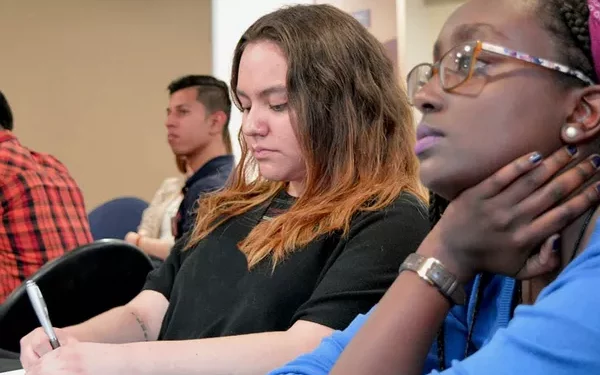Amherst, MA — A UMass Amherst student, one of three denied the opportunity to study abroad next semester due to their involvement in October’s sit-in protests against the war in Gaza, is considering legal action against the university. The student, who remains anonymous, appealed the sanctions imposed by the university administration for participating in the late-night occupation of the Whitmore Administration Building during the protest, which resulted in 56 students and one faculty member being arrested for trespassing.
Shay Negrón, the attorney representing the student, stated that her client was informed by the school’s International Programs Office (IPO) that they were ineligible for the planned study abroad programs. The sanctions have led to financial implications, including approximately $20,000 in study abroad fees, housing challenges, and difficulties registering for spring semester classes.
Negrón argues that the university’s actions infringe on her client’s First Amendment rights, stating, “They shouldn’t be disproportionately reprimanded for any of these things that they were doing when they were exercising their right for free speech.”
In an email dated December 15, IPO Director Kalpen Trivedi informed the students of their ineligibility to study abroad, pending the outcome of their appeal. Trivedi stated, “As you currently have an active sanction or appeal for a conduct issue with the Dean of Students Office, you are ineligible to study abroad concurrently.”
Negrón contends that the denial of studying abroad during the ongoing appeal process is premature and contradicts the intention of the sanction review. If the appeal is unsuccessful, Negrón suggests her client may pursue remedies in federal court.
UMass Amherst spokesperson Ed Blaguszewski defended the university’s stance, stating, “Consistent with past practice, IPO proceeded to revoke eligibility for these students to study abroad for the winter/spring semesters.” Blaguszewski reiterated that the university recognizes students’ rights to demonstrate on campus, consistent with the commitment to free speech under the First Amendment.
Another student, Aidan O’Neill, a junior and English major, also faced study abroad restrictions due to disciplinary action following the October protest. O’Neill received the same email from Trivedi on December 15, denying his study abroad request. Despite securing housing for the coming semester, O’Neill encountered challenges in registering for classes and incurred withdrawal fees for the university in Barcelona.
Rachel Weber, an attorney and activist with Jewish Voice for Peace, noted the university’s punitive actions differ from past protests, raising concerns about the treatment of students involved in peaceful demonstrations.



















